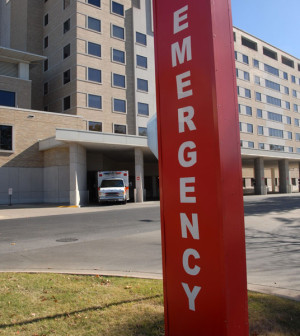- 8 Ways to Increase Dopamine Naturally
- 7 Best Breads for Maintaining Stable Blood Sugar
- Gelatin vs. Collagen: Which is Best for Skin, Nails, and Joints?
- The Long-Term Effects of Daily Turmeric Supplements on Liver Health
- Could Your Grocery Store Meat Be Causing Recurring UTIs?
- Are You Making This Expensive Thermostat Error This Winter?
- Recognizing the Signs of Hypothyroidism
- 10 Strategies to Overcome Insomnia
- Could Artificial Sweeteners Be Aging the Brain Faster?
- Techniques for Soothing Your Nervous System
Could Deep Brain Stimulation Make Parkinson’s Patients Better Drivers?


Deep brain stimulation might help improve the driving ability of people with Parkinson’s disease, a new German study suggests.
A deep brain stimulator is an implanted device that sends electrical impulses to the brain. With patients who have epilepsy, the stimulator is believed to lower the risk of seizures, the researchers said.
A driving simulator tested the abilities of 23 Parkinson’s patients with a deep brain stimulator, 21 patients without the device and a control group of 21 people without Parkinson’s. The patients with brain stimulators were tested three times: once with the device on, once with the device off and once with the stimulator off after they took the Parkinson’s drug levodopa.
The Parkinson’s patients without stimulators performed worse in every driving category except one. The patients with stimulators did not perform significantly worse than people in the control group in any category, and even did better in the category of slight driving errors.
Patients with stimulators averaged 3.8 slight driving errors, compared to 11.4 errors for patients without stimulators and 7.5 errors for healthy controls, according to the study, which was published online in the Dec. 18 issue of the journal Neurology.
Parkinson’s patients with stimulators made 11 driving errors when their stimulator was on, 13 errors when it was off and they took levodopa, and 14 errors when their stimulator was off and they did not take the medication.
“Until now, we weren’t sure how deep brain stimulation would affect driving,” study author Dr. Carsten Buhmann, of University Medical Center Hamburg-Eppendorf, in Germany, said in a journal news release.
More information
The U.S. National Institute of Neurological Disorders and Stroke has more about Parkinson’s disease.
Source: HealthDay
Copyright © 2026 HealthDay. All rights reserved.










